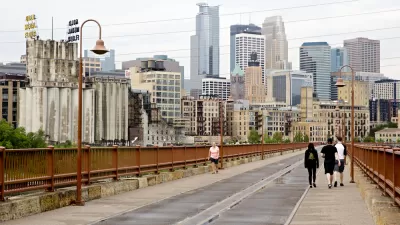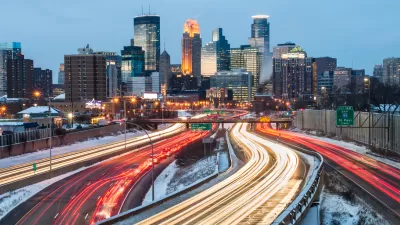A columnist presents criticisms and recommendations for both sides of the density debate as Minneapolis considers a new comprehensive plan.

"The trouble with city planning is that it’s about the future, while any city’s crankiest constituents prefer the present or, in some cases, the past."
So goes the outset of an article by Steve Berg, written to wrestle with the density controversies of the contemporary Twin Cities region.
In all, 167 cities in the region are preparing "documents aimed at telling the Metropolitan Council how they plan to grow between now and 2040." As reported earlier this month, Minneapolis in included in that process. The public comment period for the draft Minneapolis 2040 Comprehensive Plan is wrapping up soon, with changes likely coming as a result of opposition to proposed increases in density.
Though anecdotes from cities around the region are sprinkled into the column, Berg focuses on Minneapolis, where "[a]round every corner, it seems, our low-slung outpost on the northern prairie is looking more like a city." The causes are similar to pressures pushing development inward and upward in cities like Denver, San Diego, and Seattle, according to Berg, but in many ways cities are in denial.
Berg offers his critique of Minneapolis's proposed comprehensive plan (i.e., pro-development interests overstepped with the "fourplex" idea and conservatives are persistently destructive in opposition to transit investments). Still, Berg's position is pro-density, for the sake of the planet and the economic competitiveness of the region.
FULL STORY: City planning: Density is destiny

Planetizen Federal Action Tracker
A weekly monitor of how Trump’s orders and actions are impacting planners and planning in America.

Chicago’s Ghost Rails
Just beneath the surface of the modern city lie the remnants of its expansive early 20th-century streetcar system.

San Antonio and Austin are Fusing Into one Massive Megaregion
The region spanning the two central Texas cities is growing fast, posing challenges for local infrastructure and water supplies.

Since Zion's Shuttles Went Electric “The Smog is Gone”
Visitors to Zion National Park can enjoy the canyon via the nation’s first fully electric park shuttle system.

Trump Distributing DOT Safety Funds at 1/10 Rate of Biden
Funds for Safe Streets and other transportation safety and equity programs are being held up by administrative reviews and conflicts with the Trump administration’s priorities.

German Cities Subsidize Taxis for Women Amid Wave of Violence
Free or low-cost taxi rides can help women navigate cities more safely, but critics say the programs don't address the root causes of violence against women.
Urban Design for Planners 1: Software Tools
This six-course series explores essential urban design concepts using open source software and equips planners with the tools they need to participate fully in the urban design process.
Planning for Universal Design
Learn the tools for implementing Universal Design in planning regulations.
planning NEXT
Appalachian Highlands Housing Partners
Mpact (founded as Rail~Volution)
City of Camden Redevelopment Agency
City of Astoria
City of Portland
City of Laramie





























